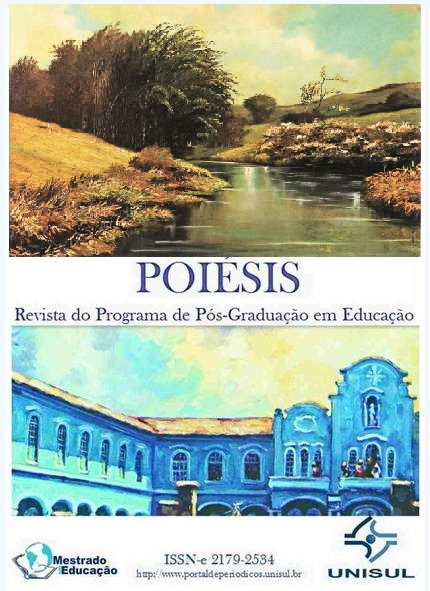THE INFANCY AND POETRY MEETING: LUDICITY, IMAGINATION AND (CO)AUTHORSHIP
DOI:
https://doi.org/10.19177/prppge.v12e0201826-44Keywords:
Poetry, Childhood, Lucidity, Imagination, (Co)authorshipAbstract
The poetry is born with the human being. Or rather, it is born when the human being begins to speak. It is our ancestor in terms of language; it is intrinsic to the human being. The earlier children interact with this form of language, the greater the degree of familiarity and the greater the chances of a fruitful and enjoyable relationship between them two. The present text aims, in general, to reflect on the relation childhood and poetry; and specifically highlight lucidity, imagination and co-authorship as aspects that stand out in this relationship. It is part of a research carried out under the doctorate in Education of the Federal University of Santa Catarina (UFSC), whose starting point is sensitive listening in research with children. The empirical occurred between October 2013 and June 2014, in a public school in Criciúma- SC, Brazil, and had the participation of twenty children, eight boys and twelve girls, aged between eight and twelve years old. The methodology used is called narrative spaces (LEITE, 2008), a procedure characterized by systematic meetings between observer and subjects, using ethnographic strategies and the use of different instruments for data collection, especially video recording. The problematization and the understanding of the theme enable to envisage actions that can promote the poetry and child encounter and potentiate the presence of the poetic text in the school, especially in the early years of Basic Education.
Downloads
Published
Issue
Section
License

Poiésis is licensed under a Creative Commons Atribuição-Uso Não-Comercial-Não a obras derivadas 3.0 Unported License.


